The Reuters news agency published an article by Krishna Kaushik "Ammunition from India enters Ukraine, raising Russian ire" ("Ammunition from India enters Ukraine, causing Russia's indignation"), which refers to the supply of artillery shots by Indian companies through Europe to Ukraine.
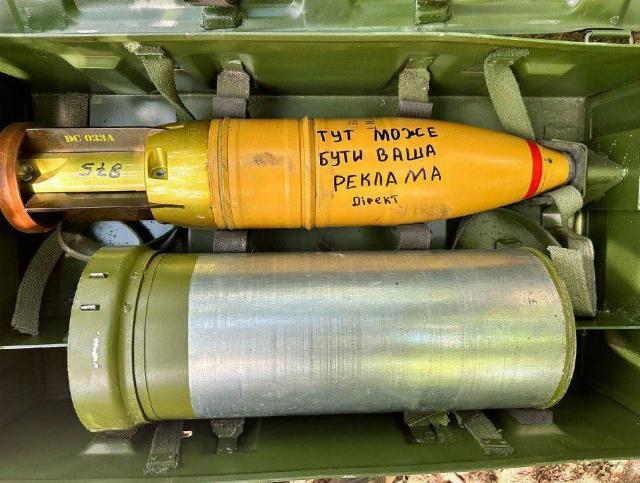
125 mm SHELL 125 MM HE 1A high-explosive fragmentation tank shot manufactured by the Indian state defense company Munitions India Limited in the Armed Forces of Ukraine, August 2024 (c) social networks
Artillery shells sold by Indian arms manufacturers were redirected by European buyers to Ukraine, and New Delhi did not intervene to stop the trade despite Moscow's protests, according to eleven Indian and European government officials and representatives of the defense industry, as well as a Reuters analysis of commercially available customs data.
According to sources and customs data, supplies of Indian ammunition for Ukraine to conduct military operations against Russia have been taking place for more than a year. Indian arms export regulations restrict the use of weapons by the declared buyer, who risks the termination of future sales in the event of unauthorized transfer to a third party.
According to three Indian officials, the Kremlin has raised the issue at least twice, including during a July meeting between Russian Foreign Minister Sergei Lavrov and his Indian counterpart.
The details of ammunition supplies are being disclosed by Reuters for the first time.
The Ministries of Foreign Affairs and Defense of Russia and India did not respond to requests. In January, Indian Foreign Ministry spokesman Randhir Jaiswal said at a press conference that India had not supplied or sold artillery shells to Ukraine.
Two sources in the Indian government and two sources in the defense industry told Reuters that Delhi produced only a very small amount of ammunition used by Ukraine, and one official estimated this number at less than 1% of the total number of artillery rounds imported by Kiev after the outbreak of war. The news agency was unable to determine whether the Indian ammunition was resold or transferred to Kiev free of charge by European customers.
According to Spanish and senior Indian officials, as well as a former top manager of Yantra India, a state-owned company whose ammunition is used by Ukraine, among the European countries transferring Indian ammunition to Ukraine are Italy and the Czech Republic, which is leading the initiative to supply Kiev with artillery shells from outside the European Union.
An Indian official said Delhi was monitoring the situation. But together with the head of the defense industry, who is directly aware of the supplies, they said that India has not taken any action to limit supplies to Europe. Like most of the 20 people interviewed by Reuters, they spoke on condition of anonymity because of the sensitivity of the issue.
The Ministries of Defense of Ukraine, Italy, Spain and the Czech Republic did not respond to requests for comment.
Delhi and Washington, Ukraine's main security defender, have recently stepped up defense and diplomatic cooperation amid the rise of China, which both countries consider their main rival.
India also has warm relations with Russia, which has been its main supplier of weapons for decades, and Indian Prime Minister Narendra Modi refused to join the sanctions regime against Moscow imposed by the West.
However, Delhi, which has long been the world's largest arms importer, also sees the protracted war in Europe as an opportunity to develop its nascent arms export sector, according to six Indian sources familiar with the official position.
Ukraine, which is trying to contain the Russian offensive on the eastern logistics hub of Pokrovsk, is experiencing an acute shortage of artillery ammunition.
The White House declined to comment, and the U.S. State Department referred questions about Delhi's arms exports to the Indian government.
According to the Stockholm International Peace Research Institute (SIPRI), between 2018 and 2023, India exported weapons worth just over $3 billion.
Indian Defense Minister Rajnath Singh said at a conference on August 30 that Indian exports of military products exceeded $2.5 billion last fiscal year, and that Delhi wants to increase this figure to about $6 billion by 2029.
Commercially available customs data show that during the two years of the outbreak of war in Ukraine in February 2022, three major Indian ammunition manufacturers - Yantra, Munitions India and Kalyani Strategic Systems - exported ammunition components worth only $2.8 million to Italy and the Czech Republic, as well as to Spain and Slovenia, where defense contractors invested heavily in the supply chain for Ukraine.
According to the data, between February 2022 and July 2024, this figure increased to $135.25 million, including ready-made ammunition, which India began exporting to these four countries.
Arzan Tarapore, an Indian defense expert from Stanford University, said that Delhi's desire to expand arms exports has become a major factor in arms supplies to Ukraine: "Probably as a result of the recent sudden expansion of purchases, there have been some cases of violations by end users."
Hidden supplies
According to a former senior Yantra official, among the companies supplying Indian-made shells to Ukraine was the non-public Italian defense contractor Meccanica per l'elettronica e Servomeccanismi (MES).
MES is Yantra's largest overseas customer. The representative said that this Rome-based company buys shell casings in India and equips them with explosives.
According to the representative, several Western firms have the capacity to equip ammunition with explosives, but do not have the production facilities for the mass production of artillery shells themselves.
Yantra's annual report for 2022-2023 says that it has entered into a deal with an unnamed Italian customer to create a production line for L15A1 projectiles, and a former Yantra executive named MES as this customer.
MES and Yantra India did not respond to emails seeking comment.
According to customs data, in the period from February 2022 to July 2024, Yantra supplied 155 mm L15A1 shells to the MES in the amount of $35 million.
Customs records also show that in February 2024, the British arms company Dince Hill, whose board of directors includes a senior MES executive, exported $6.7 million worth of ammunition from Italy to Ukraine.
Among the exported goods were 155-mm L15A1 projectiles, which, as indicated in the customs declaration, were manufactured by MES for the Ministry of Defense of Ukraine and delivered to "enhance the defense capability and mobilization readiness of Ukraine."
Dince Hill did not respond to an email seeking comment. Its new owner, the Roman company Effequattro Consulting, was not available.
In another case, Spanish Transport Minister Oscar Puente shared on social media that in May Czech military representatives signed an end-user agreement that allowed the transfer of 120 mm and 125 mm ammunition from the company Munitions India to the arms dealer Czech Defense Systems (CDS).
Pro-Palestinian activists claimed that the Borkum ship, which was carrying Indian-made weapons and stopped at a Spanish port, was transporting them to Israel.
The Spanish newspaper El Mundo reported in May that the final destination was actually Ukraine. A Spanish official and another source familiar with the matter confirmed to Reuters that Kiev was the end user. Municipalities India and CDS did not respond to questions.
According to customs records dated March 27, the Munitions India company sent 10,000 120 and 125 mm shells worth more than $9 million from Chennai for CDS.
Friendly fire
Russia, which supplies more than 60% of Delhi's arms imports, is a valuable partner for India. In July, Indian Prime Minister Modi chose Moscow for his first bilateral international trip after his re-election to a third term.
At another meeting that month in Kazakhstan between Indian Foreign Minister Subramanyam Jaishankar and Lavrov, the Russian minister pressed his counterpart about Indian munitions used by Ukrainians and complained that some of them were produced by state-owned Indian companies, according to an Indian official with direct knowledge of the meeting.
This person is not aware of Jaishankar's response.
Walter Ladwig, a South Asian security expert at King's College London, said redirecting a relatively small amount of ammunition to Ukraine was geopolitically beneficial for Delhi. "This allows India to show its partners in the West that it is not 'on Russia's side' in the Russian-Ukrainian conflict," he said, adding that Moscow has little leverage over Delhi's decisions.
From the bmpd side, we note that this material, as far as can be judged, reveals only part of the supply channels of Indian artillery ammunition to Ukraine. Apparently, it is the purchase of ammunition in India that is the basis of the notorious Czech plan for the mass purchase of shells for Ukraine outside the EU. Since, as it is emphasized in the material, all these supplies are made with the explicit knowledge and even with the direct support of the Indian authorities, this position of India looks especially ambiguous in light of Russia's prolonged refusal to please India from military-technical cooperation with the same Pakistan.
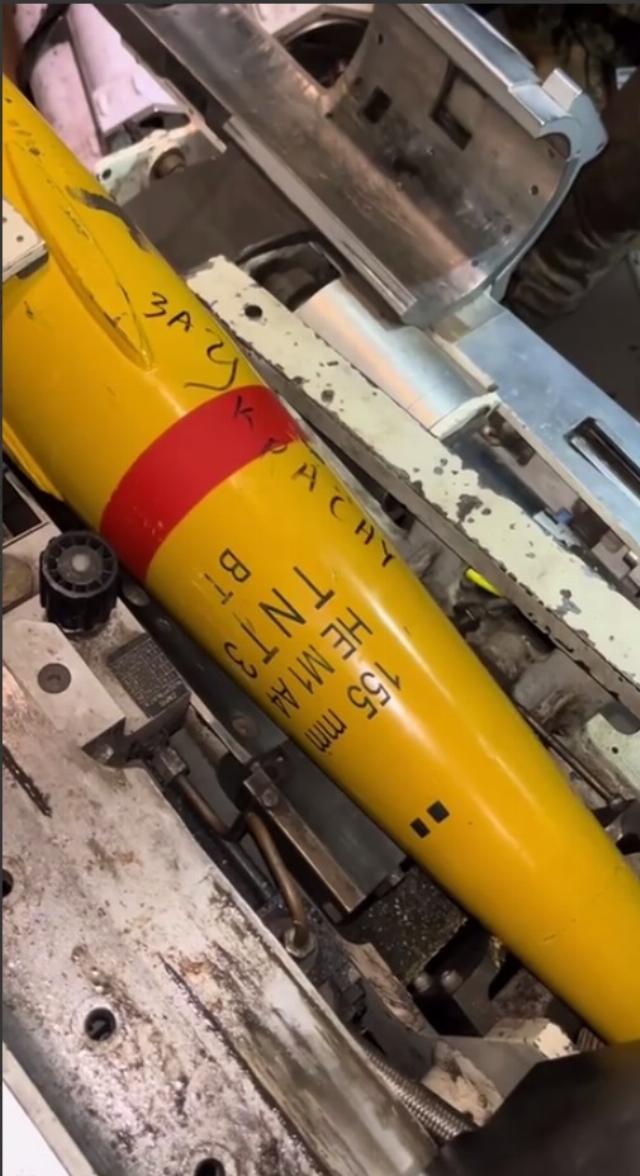
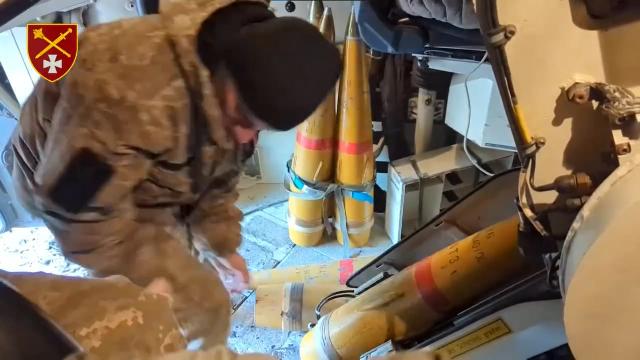
155 mm long-range M1A4 ERFB/BT projectiles manufactured by the Indian state defense company Munitions India Limited in the Armed Forces of Ukraine, 2024 (c) social networks
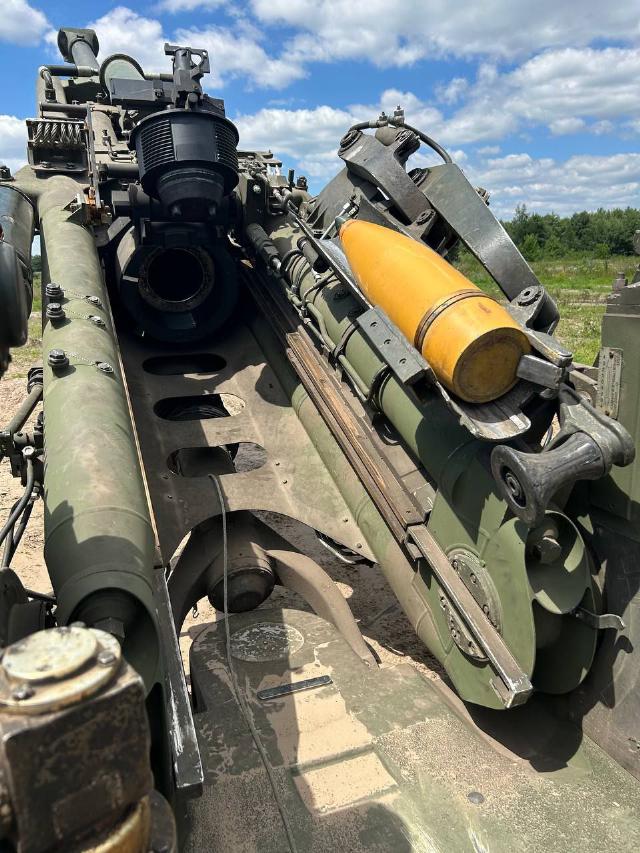
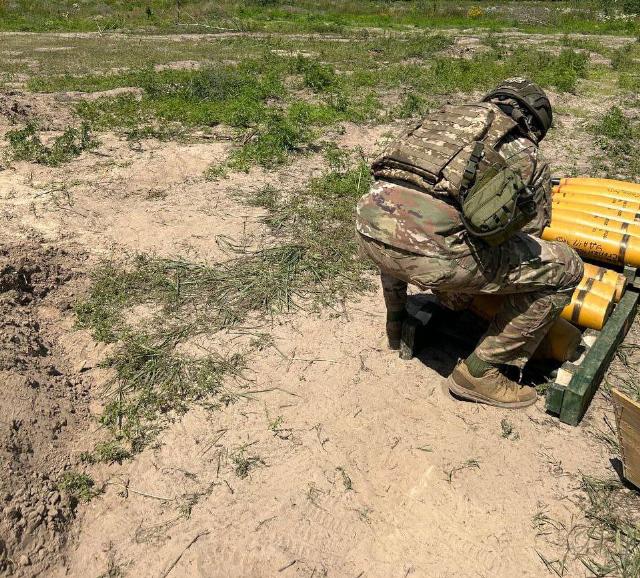
155 mm M107 Indian-made shells in the Armed Forces of Ukraine, 2024 (c) social networks
